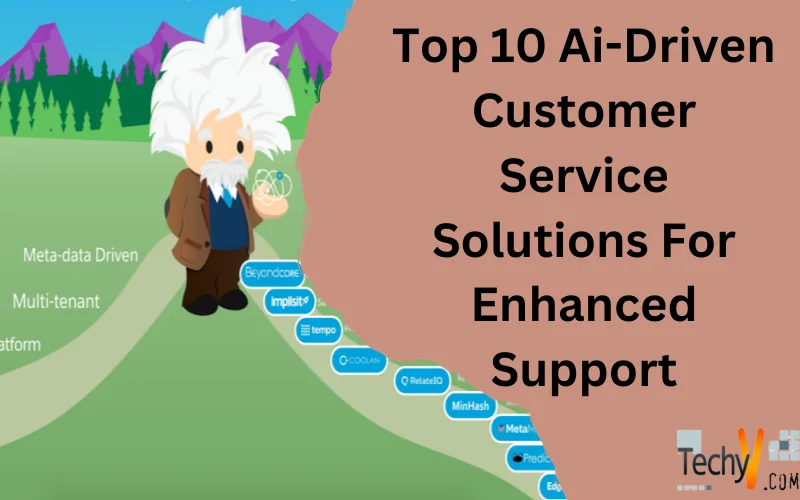Artificial intelligence infuses modern customer service, empowering companies to strengthen support capabilities. Integrating AI optimizes operations, capturing unified customer data, and applying intelligent automation for efficient issue resolution. As customers expect personalized, seamless interactions across channels, AI-enabled platforms directly enhance satisfaction. Companies should evaluate top solutions to determine ideal fits aligning with specific business needs and customer profiles while considering required development and deployment investments. I outline the top 10 AI-driven customer service platforms warranting strong consideration below. The leading options leverage machine learning, natural language processing, sentiment analysis, and predictive analytics to uncover customer insights, gauge satisfaction, route inquiries, suggest relevant knowledge base articles, enable self-service and escalate complex issues to human agents. Companies stand to gain integrated omnichannel engagement, increased first contact resolution, reduced handle times, proactive support, and continuous optimization from AI-powered customer service tools.
1. Zendesk Suite
Zendesk Suite consolidates essential capabilities for unified customer service, sales, and engagement. This expands on the strong Zendesk Support foundation, collecting customer information and interactions across touchpoints. Powerful AI then applies the aggregated data to facilitate predictive routing, self-service recommendations, relevant knowledge base suggestions, chatbot conversations, and multi-channel engagement. Companies can also integrate Zendesk Explore analytics and Zendesk Sunshine enhanced CRM. Explore reveals customer sentiment, common topics and questions, recurring issues, and other insights to inform proactive product and process improvements. Sunshine then activates customer data, applies machine learning, and recommends the next best actions across teams. These collectively optimize the customer and agent experience.
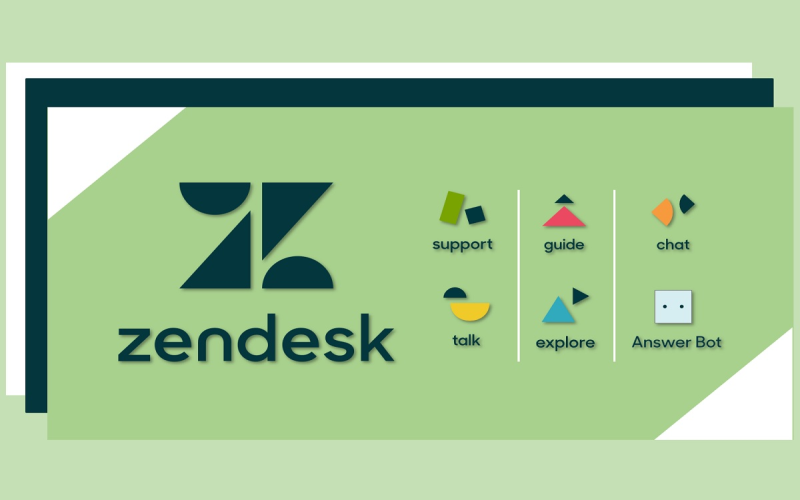
2. Salesforce Service Cloud
Salesforce dominates the CRM landscape. Its cloud-based Einstein AI infuses all solutions, including the Service Cloud customer service offering. This natively integrates an analytics dashboard highlighting customer sentiment, common questions, recurring cases, and productivity metrics. Service Cloud leverages the full customer history to resolve issues efficiently, limit repeats, and strengthen loyalty. Einstein Bots enable conversational self-service across channels, automatically elevating complex inquiries. Customer Service AI then recommends solutions by comparing open cases to historical resolutions. It also suggests knowledge-based articles based on the current case details. These AI elements simplify issue troubleshooting for agents while accelerating resolution.
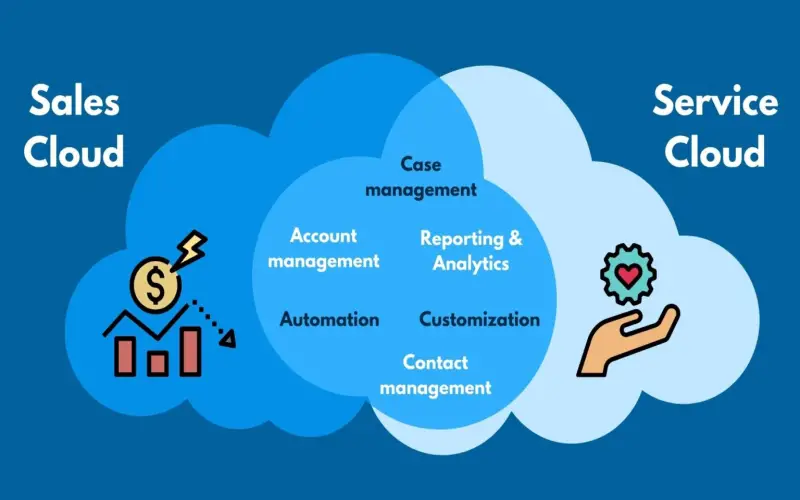
3. Freshworks Customer Service Suite
The Freshworks suite consolidates customer service, sales, and marketing capabilities accessed by thousands globally. Freshchat, its AI-powered messaging channel, responds to common inquiries automatically while assessing sentiment. This self-service efficiency minimizes the load for human agents. They then utilize Freshdesk for ticketing, knowledge base access, and multi-channel support. User experience receives particular emphasis, with intuitive interfaces across Freshworks products. This facilitates rapid agent onboarding and productivity. The company then utilizes aggregated data for continuous learning, strengthening automated resolutions and routing over time.
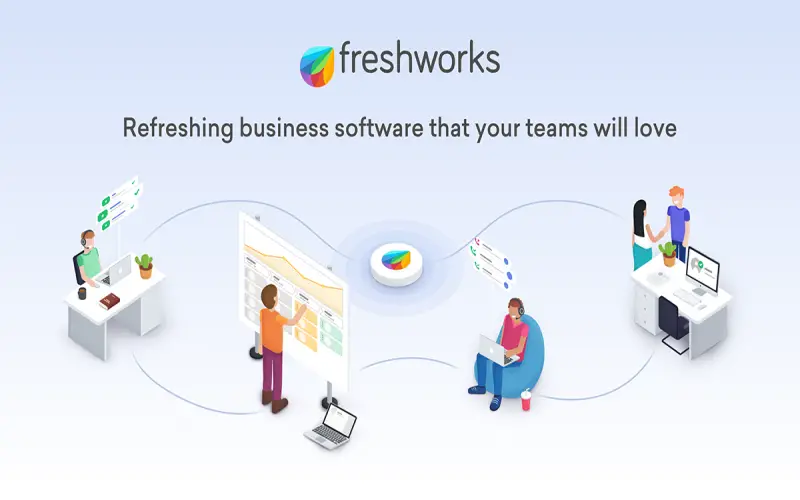
4. Intercom
Intercom concentrates fully on conversational customer engagement. Users access messaging, chatbots, knowledge bases, and analytics through one platform. This consolidates interactions for a complete user record, applying context to every conversation for relevance. The proprietary Resolution Bot handles common questions automatically while gauging sentiment to escalate intricate exchanges. Intercom also offers a customizable Messenger for web and mobile. This facilitates personalized chat support based on user history and attributes to strengthen loyalty.

5. Supportbench
Supportbench delivers an AI-powered shared services model, convergence of process and technology. It combines skilled human agents with automation to resolve customer issues across channels efficiently at reduced costs. Supportbench offers omnichannel customer support, sales enablement, and back-office services. The Virtual Managed Services team handles implementation, process optimization, and ongoing management. Supportbench AI then facilitates ticketing, inquiry routing, and automated resolutions. This full outsourcing appeals to companies seeking customer support flexibility without large in-house investments. It also provides scalability to manage spikes in demand.

6. RingCentral Contact Center
RingCentral provides unified communications as a service (UCaaS) for messaging, video, and phone. Contact Center enhances this portfolio as an AI-powered customer engagement solution. Core features include skills-based routing, real-time analytics, CRM integration, and omnichannel support. RingCentral embeds conversational AI throughout interactions, facilitating automated resolutions. Smart prompt recommendations then assist agents during calls based on customer history and previous outcomes. Real-time speech analysis also gauges caller sentiment to shape optimal responses. As a commercial UCaaS leader, RingCentral appeals for existing integration and bundled pricing incentives. The company also reports strong innovation momentum with Contact Center advancements.
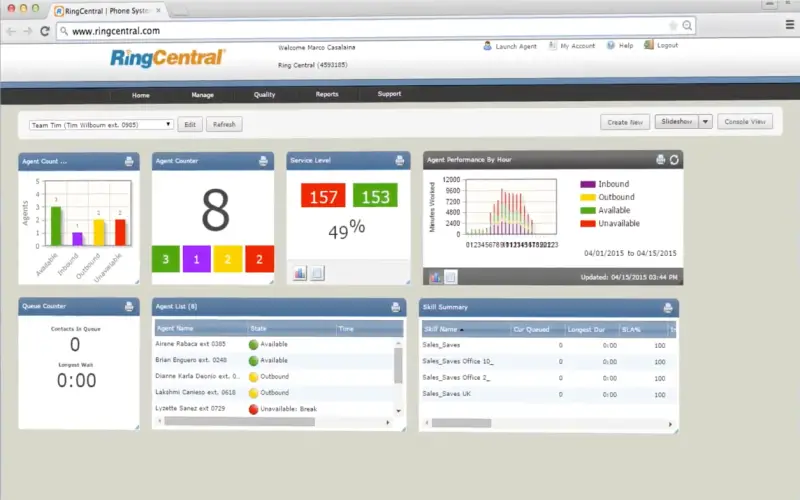
7. Hostinger
Hostinger provides a streamlined AI-based shared web hosting service. Technical support and sales inquiries route to the direct in-house team during European business hours. Outside these peak times, customers engage Hugo, an intelligent chatbot. Hugo provides 24/7 self-service, addressing common questions automatically via chat. Natural language processing facilitates free-form input parsing to match issues to relevant knowledge-base articles. Customers simply describe problems in their own words for quick answers without wait times or language barriers. Behind the scenes, support staff handle complex inquiries and train Hugo with new questions to improve over time. Hostinger also offers extensive online resources and a community forum for self-service scalability. The combined human and automated support provides reliability at low costs.

8. Salesforce Einstein
While Salesforce covers customer service capabilities in its Service Cloud solution as discussed previously, Einstein represents the proprietary AI underpinning all its offerings. This merits specific mention given aggressive development efforts. Salesforce continues to advance Einstein through acquisitions, internal investments, and developer outreach. Recent additions include further voice intelligence for call analysis and guidance along with expanded customer data platform (CDP) capabilities. The Einstein Analytics module also applies AI to reveal customer and operational insights. The combination of data volume across Salesforce’s extensive user base and deep pockets for regular innovation cement Einstein as an AI leader now and into the future. Companies benefit from these exponential gains through normal cloud version updates.
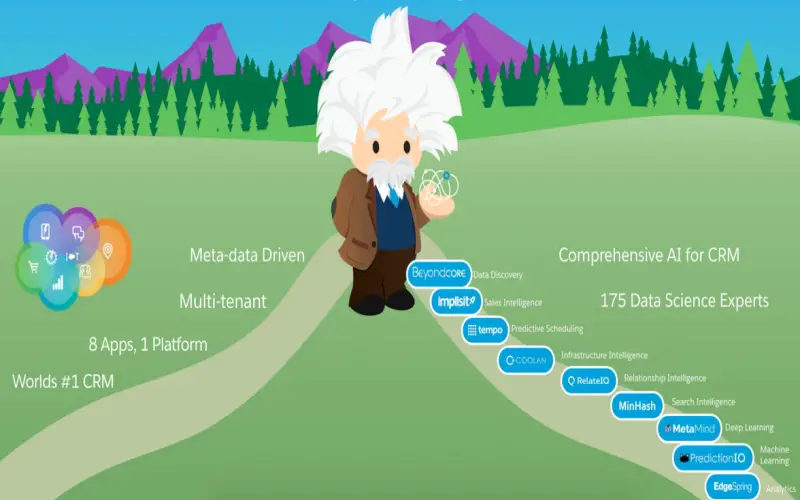
9. ChatGPT
ChatGPT exploded onto the AI scene as a viral chatbot sensation in late 2022. While not a customer service platform itself, it signals a massive leap in conversational AI capabilities with integration potential across industries. Key features like articulated reasoning around responses differentiate ChatGPT from previous interaction systems. Numerous startups now raced to tap into these advances. Very human-like CX may arrive sooner than expected. Though currently imperfect, rapid open-source development by Anthropic, Microsoft, Google, and others suggests AI assistants could handle basic customer inquiries independently within a few years.

10. AI-Powered Customer Service Tools
Numerous AI-focused startups target improving the customer service experience as well. Standout examples include PointSource augmenting agent knowledge, Cognigy and ultimate.ai driving end-to-end automation, and SparkCognition resolving complex issues via hybrid human-AI collaboration. These innovators highlight AI’s expanding potential across the customer support process – understanding people and systems; automating simple to intermediate requests; guiding agents on advanced queries; evaluating sentiment and feedback; and optimizing flows.




